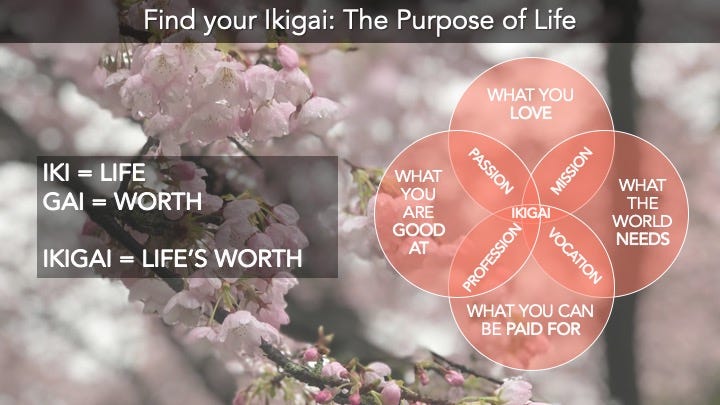
In today’s world, it is easy to move from one project to another, from one task to another, and lose sight of what’s around us. As leaders, we are here to help and support teams and bring out the best in each team member.
I’ve learned a lot in the past year about this role as a leader, and I am on a search to find my true ikigai — a Japanese concept meaning the thing you live for or your reason for being. I believe my inner drive is to help and serve others, and I am looking to redefine my purpose in life.
Ikigai: The Purpose Of Life
We embarked on a new year and a new decade, and it’s our opportunity as leaders to bring our passion, energy and drive. Let’s hit refresh, reboot, restart — whichever makes sense for you. Open a new page, and write inspiring stories to reflect on as memories in the next decade.
We are so busy all the time that we often don’t pause to reflect as much as we should. It’s an always-on, always-go era, and we need to be mindful of not letting burnout be the norm. It’s our responsibility as leaders to bring balance in our teams and our own lives. Everyone wants a slice of your time to get what they want. Do we have time to do what we need to?
We have collaboration and technology to support our communication with teams and connect with anyone around the world. But what is crucial is not the technology or process, but the ability to build trust and credibility and be respectful of each others’ boundaries of time and space.
The best advice I’ve received is to be present where you are and be in the moment. That moment and time will never come back. Now, I make a conscious effort if I am attending an event or conference to make the best out of my face-to-face conversations, and not be busy with what is happening back at the office. It’s a conscious effort and we all need to be mindful of stepping in each other’s shoes to understand our actions.
Build Influence And Empathy
As a leader, we are all trying to be inspirational and motivate our teams. We can either exercise authority or influence. Everyone can benefit from building empathy, and innovation is in finding ways to meet your customers’ unmet needs. As leaders, we need to listen between the lines.
As you are searching for your ikigai, find what you believe in — what makes you YOU. A few questions to consider:
- Are you an influencer who builds trust and credibility and respects everyone irrespective of level or title?
- How do we make sure our team members are mindful and build empathy in their day-to-day actions and decisions?
- When you are challenged by others, how do you keep an open mind to change your perspective?
Perception And Belief
Vinod Khosla has shared his thoughts on the need for leadership to have a belief system and on doing what you believe in, not what others expect. It’s common for organizations and businesses to get comfortable with success, and we can forget that we need to challenge our own status quo.
As a leader, I aspire to be bold and take risks, but that doesn’t come naturally. I have always been the one helping execute our leader’s vision and keen to solve others’ problems. I hadn’t thought of myself as the person with the next big idea. Quickly, I realized that relationship building and taking the team to the next level required me to step up, do more and get outside my comfort zone. Today, I am ready to take on this challenge and shape my next decade as a leader.
Every job is evolving, and the role we are in today may not exist or may morph and adapt into another role in the future. It’s important for us to be thinking forward into the future, while also focusing on the present short-term goals.
As team leaders, we have an obligation to help teams be optimistic and motivated when things are changing around them. Our perception is our reality. It’s important to make sure we look at the glass as half full vs. half empty, as it’s easy to be distracted and lose focus on what we are aspiring to build together as a team.
A growth mindset helps us overcome our inner beliefs and assumptions, and we need to be able to understand ourselves — then understand others. We need to find what makes us happy and what drives our passion. We need to find our deeper meaning and connect with our teams.
The Courage to Be Happy, by Ichiro Kishimi and Fumitake Koga, articulates the quest for self-reliance. Those who are constantly seeking approval in everything they do may forget to build their own self-reliance. In our fast-paced world, we need to find out what we can uniquely do, and in my opinion, that’s the true calling of one’s ikigai.
- What do you love? Find what you enjoy and what makes you happy.
- What are you good at? Find what doesn’t seem like work for you.
- What does the world need? Find the balance between your aspirations and core beliefs.
- What can you be paid for? Find an opportunity where your skill set is needed.
I believe finding your true ikigai establishes a synergy between passion, mission, vocation and profession.
“Do not live to satisfy the expectations of others.”
ICHIRO Kishimi
I think that quote sums it up best.
Originally published at https://www.forbes.com


